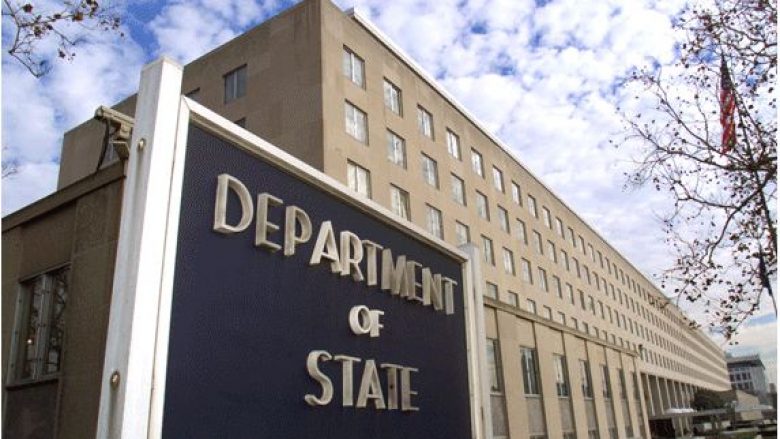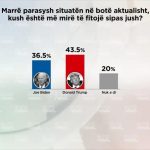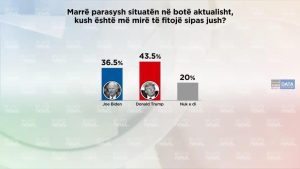In the 2021 World Human Rights Report, the State Department said that in Kosovo important issues of these rights included credible reports on: serious restrictions on freedom of expression and the media, including violence or threats of violence against journalists ; serious government corruption and impunity and crimes involving violence or threats of violence against ethnic minorities or other marginalized communities.
The government, the report said, took steps to identify, investigate, prosecute and punish officials who commit human rights violations, but sometimes lacked consistency in action. Many people in government, opposition, civil society and the media, reported cases of senior officials being involved in corruption or acting with impunity.
The government sometimes suspended, removed offenders from office or transferred defendants, and the justice sector sometimes took steps to prosecute and punish those officials who commit violations and crimes. However, many corrupt officials continued to hold public office positions.
War crimes
The report mentions the work of the Kosovo Special Court for War Crimes based in The Hague and the actions for the prosecution of war crimes cases by the courts in Kosovo.
As of September, the Kosovo Special Prosecution Office (SPRK) had under official investigation 12 war crimes cases. During the year the SPRK issued a ruling to initiate investigations. A high-profile war crimes case known as “Drenica I” was sent for retrial in 2017, but was delayed several times. No hearing was held until December.
The report notes that in July, a court in Pristina sentenced former Serbian police officer Zoran Vukotic to three and a half years in prison for raping a wartime Albanian woman and participating in the expulsion of Kosovo Albanian civilians from the city of Vushtrri / Vuritrn, in 1999. Since 2019, Vukotiçi has been serving a six-and-a-half-year sentence for war crimes of illegal detention and torture of Kosovo Albanian prisoners in the Mitrovicë / Mitrovica region. The additional sentence marked the first time that a Kosovo court convicts a defendant for rape during the war, the report says, VOA reports.
The report also includes the March sentencing of Kosovo Serb Zlatan Krstic and Albanian Destan Shabani, both former Serbian police officers, to 14 and a half and seven years in prison, respectively, for war crimes against Albanian civilians in 1999. In February, a court in Pristina sentenced Kosovo Serb Zoran Djokic to 12 years in prison for war crimes against Kosovo Albanians committed between March and April 1999 in the Pec region.
The government Commission on Missing Persons said in September that 1,632 people were still missing during the 1998-99 war and the ensuing political violence. By law, the government’s missing persons database does not include the ethnicity of missing persons, unless reported voluntarily by their family. The commission hinted that about 70 per cent were Albanians while 30 per cent were Serbs, Roma, Ashkali, Egyptians, Bosniaks, Gorani, Montenegrins and others.
Ill-treatment of prisoners
The report also includes complaints about ill-treatment of prisoners and the use of violence by members of law enforcement.
The government sometimes investigated violations, although the mechanisms for doing so were not always effective or were subject to political interference during the period covered by the report. The security forces, it is further stated, did not ensure compliance with the court orders when local officials did not carry them out. Although several police officers were arrested on corruption charges during the year, impunity remained a problem.
The report includes data from the Kosovo Police Inspectorate, which by November had received 1,862 complaints, 617 of which were sent for criminal investigation. The complaints were mainly about ill-treatment in the exercise of official duty, abuse of office, bodily injury, intimidation and domestic violence. The inspectorate reported that 158 police officers were under investigation, 78 had been suspended and 31 had been arrested.
Judicial independence
The report states that According to the European Commission, non-governmental organizations and the People’s Advocate Institution, the administration of justice was slow and lacked the means to ensure the accountability of judicial officials. Judicial structures were subject to political interference, contested appointments, and unclear mandates.
Among other things, the report states that the authorities sometimes failed to implement court orders, including those of the Constitutional Court. Some Kosovo Serb representatives claimed that government institutions failed to execute court decisions in favor of Kosovo Serbs, particularly in property disputes. Central and local authorities in Deçan continued to reject the implementation of the 2016 Constitutional Court ruling confirming the ownership of the Serbian Orthodox Church over more than 24 hectares of land near the Deçan Monastery. In September, the Constitutional Court noted the government’s continued refusal to implement the court ruling and referred the matter to the state prosecutor. As of December, the prosecutor had not initiated criminal proceedings. None of the officials who did not comply with the court order were sanctioned, the report said.
Freedom of expression
The report notes that although the government generally respected the right to freedom of expression, credible reports say that some public officials, politicians, businesses and religious groups tried to intimidate media representatives. Funding problems also undermined media independence. Journalists encountered difficulties in obtaining information from government and public institutions, despite laws providing access to public documents.
Independent media, it is further stated, were active and expressed a variety of views, generally without restrictions. However, there were reports that government officials, some political parties, government-affiliated businesses, religious groups, and disgruntled individuals pressured media owners, editors, and journalists not to publish certain stories or materials. Some journalists refrained from critical investigative reporting due to fears for their physical safety or workplace.
While some self-sustaining media outlets adopted editorial policies and broadcasts independent of political and business interests, those with fewer sources sometimes received financial support in exchange for positive coverage or to refrain from publishing negative stories detrimental to the interests of funders. . According to some editors, funding was limited in part because the government was reluctant to buy ads in the media that published material critical of government policies.
As of December, the Kosovo Journalists’ Association reported 26 cases where government officials, business people, or representatives of community or religious groups violated freedom of the press by physically attacking or verbally threatening journalists.
The report notes that some journalists complained that media owners and managers prevented them from publishing or broadcasting material critical of the government, political parties, or individual officials.
Corruption and government transparency
The report notes that officials sometimes engaged in corrupt practices with impunity, and that lack of effective judicial oversight and general weakness in the rule of law contributed to this problem. Corruption cases were routinely subject to repeated appeals, and the judicial system often allowed the statute of limitations or deadlines to adjudicate cases.
The report says that the Special Prosecution Office filed nine corruption-related indictments by December 2021, but a handful of corruption cases that were investigated and indicted ended in convictions.
Domestic non-governmental organizations and international organizations, the report said, claimed numerous failures by the judiciary to prosecute corruption, noting that very few cases filed against senior officials resulted in convictions and convictions of high-ranking officials. for corruption was often lenient.
Rape and domestic violence
The report cites the European Union Rule of Law Mission, which found that courts often imposed lighter-than-legal sentences in rape cases, and that rule of law bodies rarely took steps to protect victims and witnesses.
The Office of the Prosecutor for Assistance to Victims, reported an increase in domestic violence from 1,145 cases reported in 2020 to 1,374 cases from January to August 2021. Sexual violence and rape occurring inside or outside family, were rarely reported by victims, often due to fear of social stigma or lack of trust in the authorities.
The report refers to women’s rights organizations, according to which sexual harassment was common in workplaces in both the public and private sectors, including public institutions of higher education. / VoA /









This article opened my eyes, I can feel your mood, your thoughts, it seems very wonderful. I hope to see more articles like this. thanks for sharing.
Your article helped me a lot, is there any more related content? Thanks! https://www.binance.info/it/join?ref=JHQQKNKN